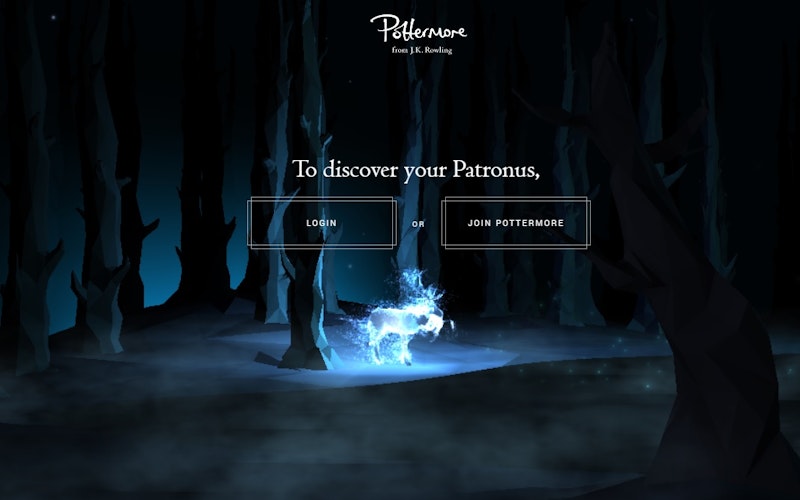
Culture At Large
Pottermore Quizzes and Personal Identity
In between distressing news reports and conflicting political opinions, my social media feeds have been flooded with Harry Potter fans announcing their patronus animal, discovered (along with their Hogwarts’ house and personal magic wand) at the Pottermore website. In the Harry Potter universe, a patronus is an animal protector that can be produced with a difficult spell. Different people produce different animals; in the books, Harry’s patronus is a stag. According to the website, mine is a wild rabbit (also, I’m a Ravenclaw, surprising nobody). These results have been shared with surprising levels of emotional investment, ranging from pride to frustration.
The patronus game is an especially apt example of the popular quizzes we see online (if it could be called a quiz, as the word-selection mechanism on the website is meant to be mysterious and timed to require impulsive responses). People like these quizzes because they like to have some kind of external arbiter affirm something they believe about themselves, or maybe because they hope to discover something about themselves that they couldn’t see without help. According to the fictional lore recounted on Pottermore, the particular form of a patronus “represents that which is hidden, unknown but necessary within the personality,” and can take a form surprising even to the caster.
These quizzes and categories—including more traditional ones such as the Enneagram and Myers-Briggs—appeal to us because they give us a way to think about and celebrate our differences. They help us see what we bring to the world, and what our friends do too. The “describe yourself in three fictional characters” meme does a similar thing: helps us define ourselves and what makes us special.
These quizzes help us see what we bring to the world, and what our friends do too.
In the church, we often see how God uses our differences to build his kingdom and build each other up. Paul writes about different spiritual gifts in the body of Christ. I love the stories about left-handed Ehud and beautiful, bold Esther. Teaching college, I am perhaps especially close to those at an age where they are longing to be known, to have a direction, and to be special. But I think it’s a common longing no matter what the demographic. Revelation tantalizingly promises a white stone with a secret name. I wonder if a longing for self-knowing and being known lies under our love for personality quizzes.
I also wonder if sometimes we get so fixated on what makes us special and different, we forget to focus on what makes us united. I found Karl Vaters’ essay at Christianity Today a useful corrective on that front. Vaters is right that God’s will for each of us in particular is, for the most part, the same as for everyone else. Indeed, the Bible is full of commands that apply to all of us, but are not easy. Loving God and loving others is already a pretty tall order in terms of God’s will for my life.
Then again, part of our unity in purpose involves appreciating the details in the ways God made each of us different, and the ways God brought us together. Sometimes that appreciation might come in the form of something silly and tied to our favorite stories, like the Pottermore quizzes. I like the way having fun with Harry Potter unites us as fans of stories and characters, even as it reveals how we differ from each other. Maybe it can unite us, too, as members of God’s family who can work together in our differences for his glory.
Topics: Culture At Large, Arts & Leisure, Entertainment